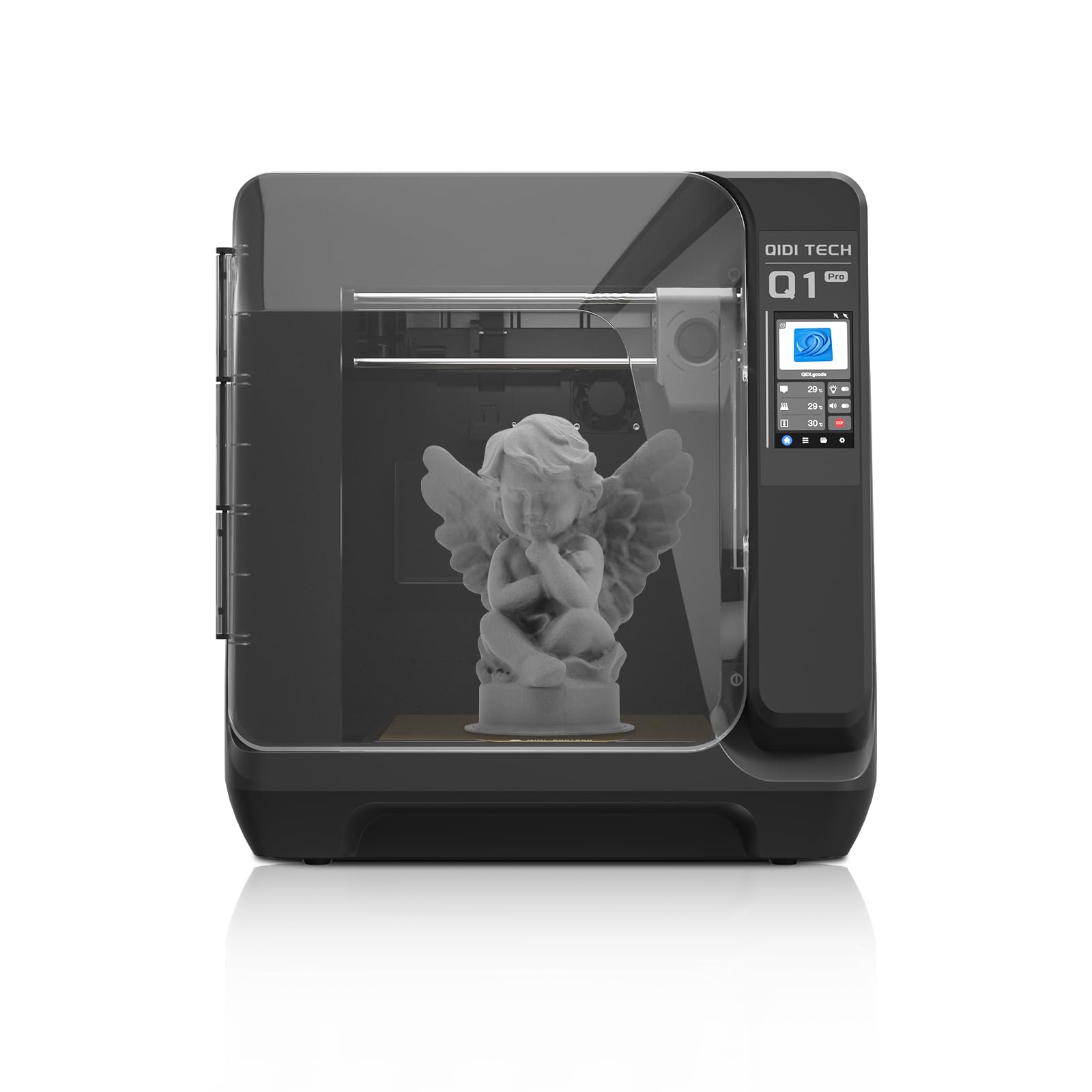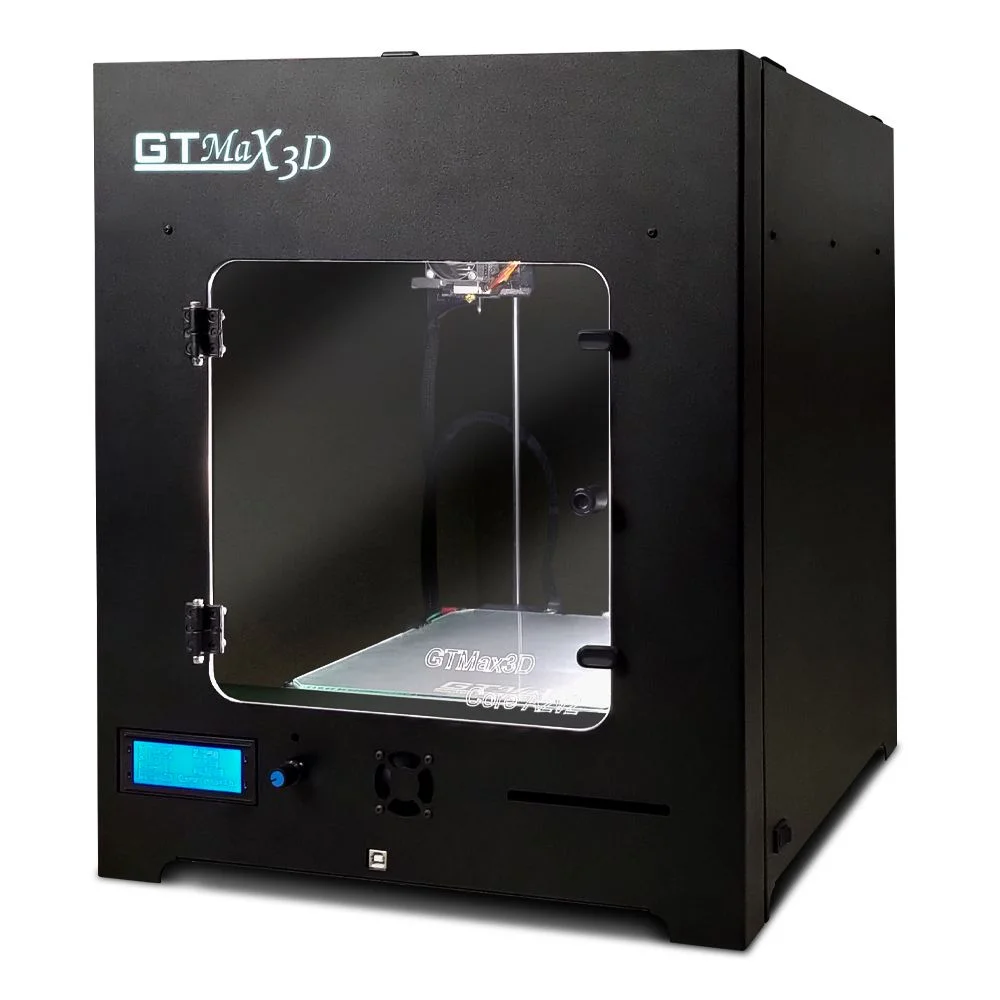Compare Q1 PRO vs Core A2V2
Comparison between the best 3D printers
Choose the best 3D printer at the best price. The cheapest 3D printers are here.
Buy a 3D printer here with 3D Fila.
 |
 |
|
| Model | Q1 PRO[BUY Q1 PRO] |
Core A2V2 |
| Printing Material | Filament | Filament |
| Buy Filament for QIDI Q1 PRO | Buy Filament forGTMax Core A2V2 | |
| Estimated price | $449,00 | $684,00 |
| Manufacturer | QIDI | GTMax |
| Release Year | 2024 | 2019 |
| Print Volume [mm] | 245x245x245 | 220x220x240 |
| Printer Size [mm] | 467x477x489 | 425x460x512 |
| Weight [kg] | 20 | |
| Power Loss Recovery | YES | YES |
| Enclosed printer | YES | YES |
| Bed Leveling | Automatic | |
| Filament End Sensor | YES | YES |
| Bed type | Heated | Heated |
| Power supply system | Direct Drive | Bowden |
| Standard nozzle | 0,4 | 0,4 |
| Maximum Nozzle Temperature [°C] | 350 | 295 |
| Maximum Bed Temperature [°C] | 120 | 135 |
| Maximum printing speed [mm/s] | 600 | 150 |
| Filament holder | YES | YES |
| Camera for supervision | YES | YES |
| Recommended filaments | PLA、ABS、ASA、PETG、TPU、PC、PA、PA-CF、PET-CF、PAHT-CF etc. | PLA, PETG, Tritan, Flex, ABS |
| Recommended slicers | QIDI Slicer/Cura/Simplify 3D/ORCA/PRUSA Slicer | Cura, Simplify, Slic3r, IdeaMaker |
| Maximum Resolution [mm] | 0,1 | 0,05 |
| Processor | Cortex-A53,64-bit Processor | |
| Display | Touchscreen 4,3'' | Mono |
| Power Supply | 350 W | |
| Connectivity | WiFi/USB Flash Drive/Ethernet Cable | SD / USB |
| Operating systems | Windows, Linux, Macbook | Windows, Mac, Linux |
| Date of registration in the system | 2024-07-09 | 2022-11-12 |
| Release date | 2024 | 2019 |
| Extra features | The QIDI Q1 Pro 3D printer stands out for its Core XY structure and heating chambers that reach up to 60ºC, ideal for advanced materials such as ABS and Nylon. It features Klipper firmware, an automatic leveling system, a high-flow extruder with a double metal nozzle and a hotend that reaches 350ºC. It offers connectivity via Wi-Fi, USB and Ethernet, as well as a 1080p camera for remote monitoring and an intuitive touchscreen for easy operation. | The GTMax3D ProCore A2v2 is a compact and robust 3D printer with a printing area of ??220 x 220 x 240 mm. It offers high print quality, ranging from 0.05 mm to 0.32 mm. Its features include automatic filament detection and changing, travel speed of up to 300 mm/s, and a heated aluminum bed with a glass top. It has automatic bed leveling with 16 points and an all-metal hotend that reaches up to 298°C. The printer has a carbon steel frame with electrostatic painting, is automatic bivolt and has connectivity via USB and SD card. The Bowden system and core xy kinematics complete its advanced features. |
| Support for multiple colors and materials (AMS and CFS) | NO | NO |
Notes * |
||
| Cost-benefit | 8 / 10 | 6 / 10 |
| Hardware | 4.8 / 10 | 2.5 / 10 |
| Tela | . | . |
| Print volume | 3 / 10 | 3 / 10 |
| Performance | 5 / 10 | 1 / 10 |
| [BUY Q1 PRO] |
Conclusion |
| In comparing the QIDI Q1 PRO and the GTMax Core A2V2, it's evident that both printers cater to different user preferences and priorities. The QIDI Q1 PRO, released in 2024, provides a larger print volume, enhanced maximum nozzle and bed temperatures, and higher printing speed, making it particularly suited for users looking to print with a diverse range of advanced materials. Its modern features, such as automatic bed leveling, a more user-friendly touchscreen interface, and superior connectivity options like Wi-Fi and Ethernet are designed for ease of use and operational flexibility. Furthermore, the inclusion of advanced firmware and a high-flow extruder positions the Q1 PRO as a more robust option for demanding print jobs. On the other hand, while the GTMax Core A2V2, introduced in 2019, offers solid build quality and decent features for hobbyists, it falls short in several areas, including print speed and maximum temperature capabilities. Although it does provide excellent print quality and some advanced features such as automatic filament detection and a robust frame, the Core A2V2 is more constrained in terms of print volume and operating speed. Considering the cost-benefit analysis, the QIDI Q1 PRO offers a stronger performance to price ratio. While its initial price might be lower than the Core A2V2, it delivers significantly better performance metrics, supporting a variety of materials and producing prints faster and with higher fidelity. In conclusion, for users looking for an advanced 3D printing experience with the flexibility to handle a wide array of materials and requiring higher print speeds, the QIDI Q1 PRO is the superior choice. Conversely, for those seeking a more budget-oriented option with decent reliability for basic 3D printing needs, the GTMax Core A2V2 remains a viable, albeit less versatile, alternative. |

